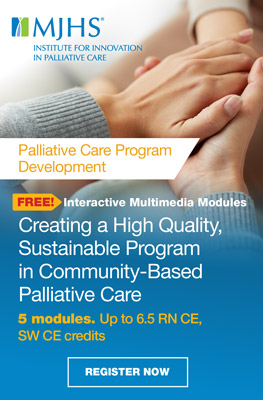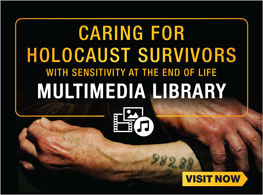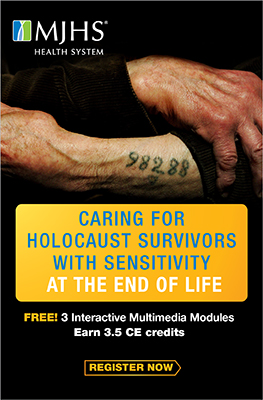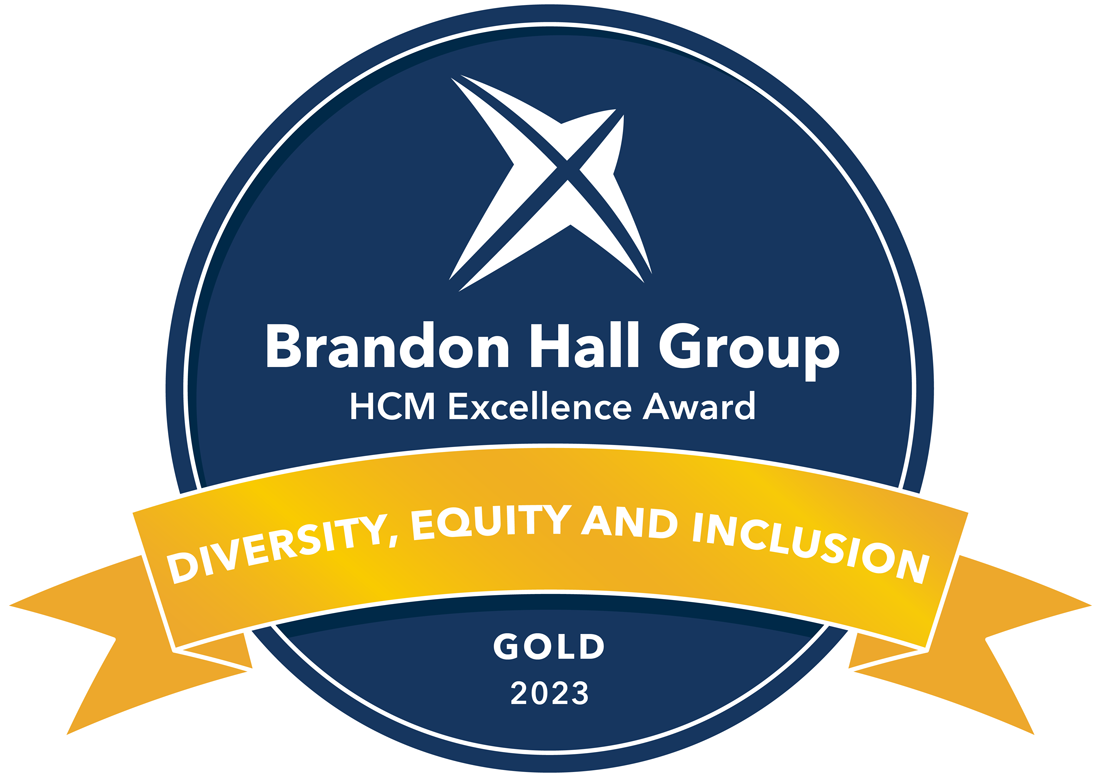Hospice & Palliative Care
ONLINE CONTINUING EDUCATION
Learn Anytime. Earn Credits. Improve Practice.
ON-DEMAND WEBINAR SERIES:
PSYCHOSOCIAL NEEDS OF CANCER PATIENTS FROM AN ETHNICALLY DIVERSE UNDERSERVED COMMUNITY
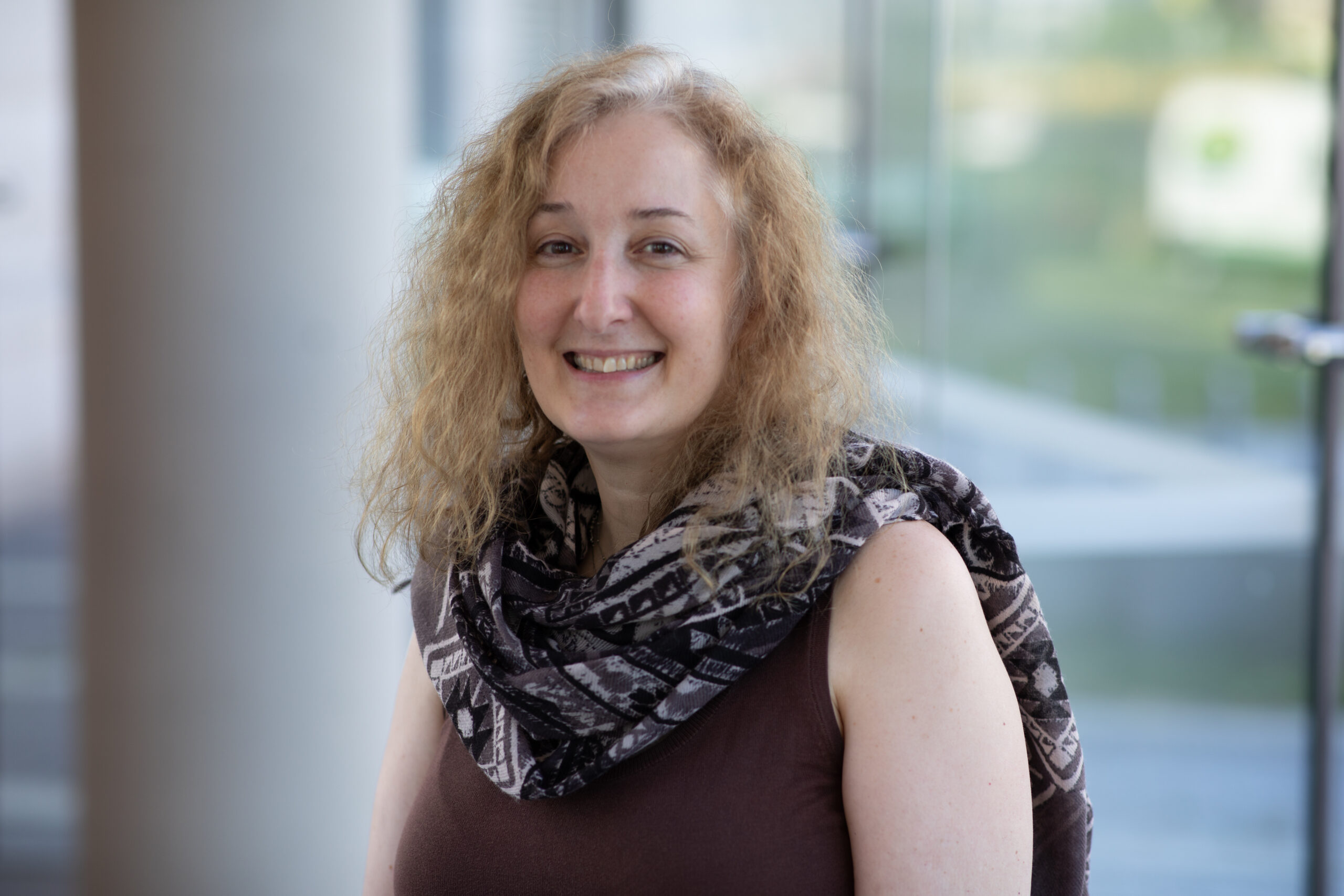
Deputy Director, Community Engagement & Cancer Health Equity
Founding Director, BOLD Cancer Wellness Program
Montefiore Einstein Cancer Center, Bronx, NY
Purpose: The needs to grow, connect, and contribute can be seen across ethnicities, socioeconomic levels, and the lifespan, including at the end of life. Palliative care providers can benefit from understanding these psychosocial needs and how salient they are among underserved and ethnic minority patients with advanced disease. Towards this end, this webinar will describe data of an ongoing psychosocial needs assessment of cancer patients from the disadvantaged and ethnically diverse community of Bronx, NY. It will also present a brief overview of the BOLD Cancer Wellness Program developed in response to this needs assessment.
Objectives:
- Describe salient psychological and social needs among advanced stage, underserved cancer patients
- Review assessment tools for identifying psychosocial needs and interests
- Discuss strategies to support patients’ needs for growth, connection, and contribution at end of life
Continuing Education Credits: 1.0
Continuing Education Accreditation
Physicians: The AAFP has reviewed MJHS Institute for Innovation in Palliative Care 2023-2024 Interprofessional Webinar Series On-Demand, and deemed it acceptable for AAFP credit. Term of approval is from 11/16/2023 to 11/14/2024. Physicians should claim only the credit commensurate with the extent of their participation in the activity. This session Psychosocial Needs of Cancer Patients From an Ethnically Diverse Underserved Community is approved for 1.0 enduring AAFP Elective credit.
Note: Physicians should contact their respective licensing boards and specialty certification boards about acceptance of AAFP Elective credits when attempting to satisfy CME credit requirements.
Nurses: The MJHS Institute for Innovation in Palliative Care is approved as a provider of nursing continuing professional development by the Northeast Multistate Division Education Unit, an accredited approver of continuing nursing education by the American Nurses Credentialing Center’s Commission on Accreditation.
Social Workers: MJHS Institute for Innovation in Palliative Care is recognized by the New York State Education Department's State Board for Social Work as an approved provider of continuing education for licensed social workers #SW-0242.
Case Managers: This program has been pre-approved by The Commission for Case Manager Certification to provide continuing education credit to CCM® board certified case managers. The course is approved for 1.0 CE contact hour.
To claim this CE, log into your CCMC Dashboard at www.ccmcertification.org.
Fees: Free (includes CME/CE certificate)
Release Date: July 4, 2024
Expiration Date: July 3, 2025(for physicians and non-physicians); April 15, 2025 (for nurses); January 31, 2028 (for NYS Social Workers); November 18, 2025 (for Case Managers)
Disclosures:
Alyson Moadel, PhD, has no financial arrangements or affiliations with any commercial entities whose products, research, or services may be discussed in these materials. Any discussion of investigational or unlabeled uses of a product will be identified.
No Planning Committee Member has any disclosures.
Planning Committee Members
Myra Glajchen, DSW
Kerrianne P. Page, MD, HMDC
Joyce Palmieri, MS, RN, CHPN
Karen Richards, PhD, EdS
Funding Disclosure: No commercial funding has been accepted for the activity.
Location: Online at https://www.mjhspalliativeinstitute.org/e-learning/
The MJHS Institute for Innovation in Palliative Care is pleased to offer free interdisciplinary palliative care webinars, live and on demand, delivered by frontline experts, typically offering Continuing Medical Education (CME), Nursing continuing education (CE), Social Work CE credits, Case Manager CCMC CE credits, and Music Therapy CE credits.
Our free interactive multimedia modules on Community-Based Palliative Care Program Development and Caring for Holocaust Survivors With Sensitivity at End of Life offer up to 9.75 CE credits.
Free pdf downloads now available: 15 palliative care professional factsheets and patient education handouts on 18 topics in English, Spanish, Haitian Creole, Arabic, French, and Russian.
